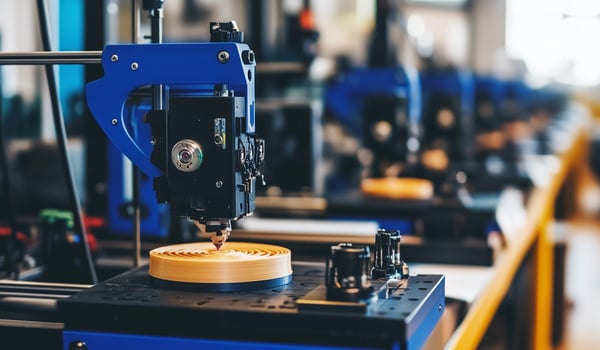Generative Design in Manufacturing
This solution leverages LLMs to augment the design process in manufacturing by generating design variations, automating design validation, and optimizing designs for performance and efficiency. This enables manufacturers to explore a wider design space, reduce design cycle times, and create more innovative and competitive products.

Common Challenges & Pain
Traditional design processes often limit the exploration of alternative design concepts due to time and resource constraints. Manual design validation and feedback loops can be time-consuming and prone to errors. Additionally, design choices may not always be optimal due to the complexity of considering multiple factors and constraints.
- Design Iteration & Exploration Limitations
- Manual Design Validation & Feedback
- Suboptimal Design Choices
A PLATFORM STRATEGY
The Vertesia Approach
The platform integrates with existing CAD software, providing a user-friendly interface for engineers to input design parameters, constraints, and performance objectives. LLMs generate design variations, analyze them against predefined criteria, and provide feedback for iterative improvement. Machine learning algorithms optimize designs based on performance data and simulation results.
Design Input & Parameterization
Engineers input design parameters, constraints, and performance goals into the platform, defining the design space and objectives.
Design Generation & Exploration
LLMs generate multiple design concepts and variations based on the input parameters, expanding the design space and enabling engineers to explore a wider range of possibilities.
Design Analysis & Optimization
LLMs analyze generated designs against industry standards, regulations, and performance criteria, providing automated feedback and identifying potential issues. Machine learning algorithms optimize designs based on performance data and simulation results, leading to data-driven design improvements.
WHY VERTESIA
The Benefits of Generative Design in Manufacturing with Vertesia
Enhanced Design Exploration
LLMs can generate multiple design concepts and variations based on input parameters and constraints, expanding the design space and enabling engineers to explore a wider range of possibilities.
Automated Design Validation & Feedback
LLMs can analyze designs against industry standards, regulations, and best practices, providing automated feedback and identifying potential issues early in the design process.
Data-Driven Design Optimization
By leveraging machine learning algorithms, LLMs can optimize designs for specific performance metrics, such as weight, strength, and material usage, leading to more efficient and cost-effective outcomes.

APPLICABLE INDUSTRIES
SOLUTION CATEGORY
DEPARTMENTS